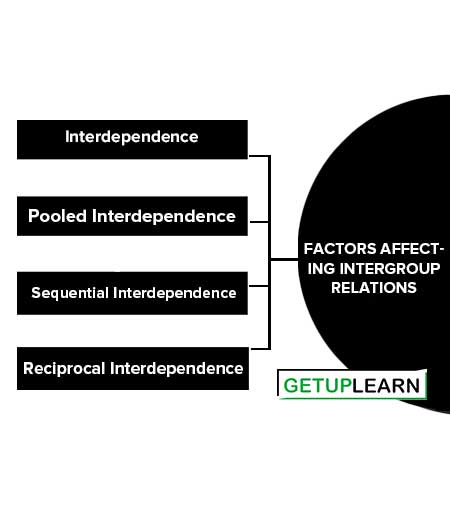Table of Contents
What are Intergroup Relations?
An intergroup relation refers to the relationship that exists between two or more groups in an organization. Intergroup relationships have a major influence on the coordination among individuals belonging to various groups.
Coordination is a necessary element in the effective performance of organizations. Therefore, intergroup relations have to be maintained properly.
Factors Affecting Intergroup Relations
These are the factors affecting intergroup relations explained below:

Interdependence
The degree to which groups are interdependent defines the extent of their interaction with each other. Therefore, the interdependence of groups is a major factor that affects intergroup relations. The interdependence of groups can be pooled, sequential, and reciprocal.
Pooled Interdependence
When two or more groups work individually but their cumulative efforts lead to the accomplishment of a common task, then the groups are said to share a pooled interdependence.
Sequential Interdependence
This kind of interdependence exists when one of the groups is dependent on the other for some input, but the reverse is not true.
For instance, in a manufacturing company, during the process of manufacturing, work groups belonging to the production of products are dependent on the inventory department for the supply of raw materials, but the inventory department is not dependent upon the production department.
Reciprocal Interdependence
This type of interdependence exists between groups that are mutually dependent on each other for the exchange of inputs and outputs. This type of interdependence results in a higher degree of interaction between groups when compared to pooled or sequential interdependence.
